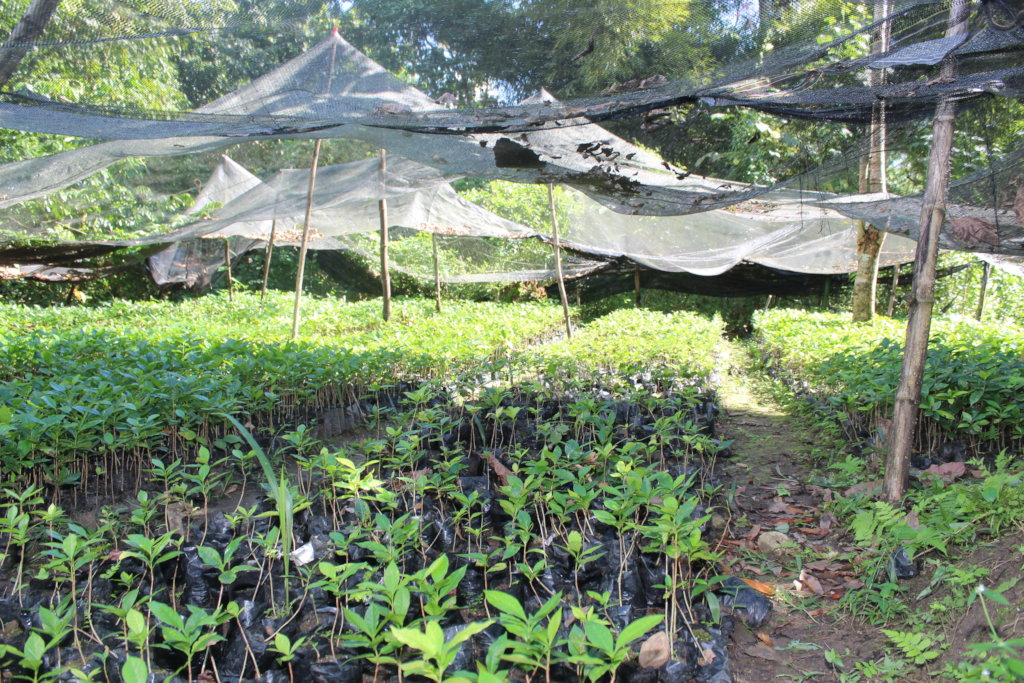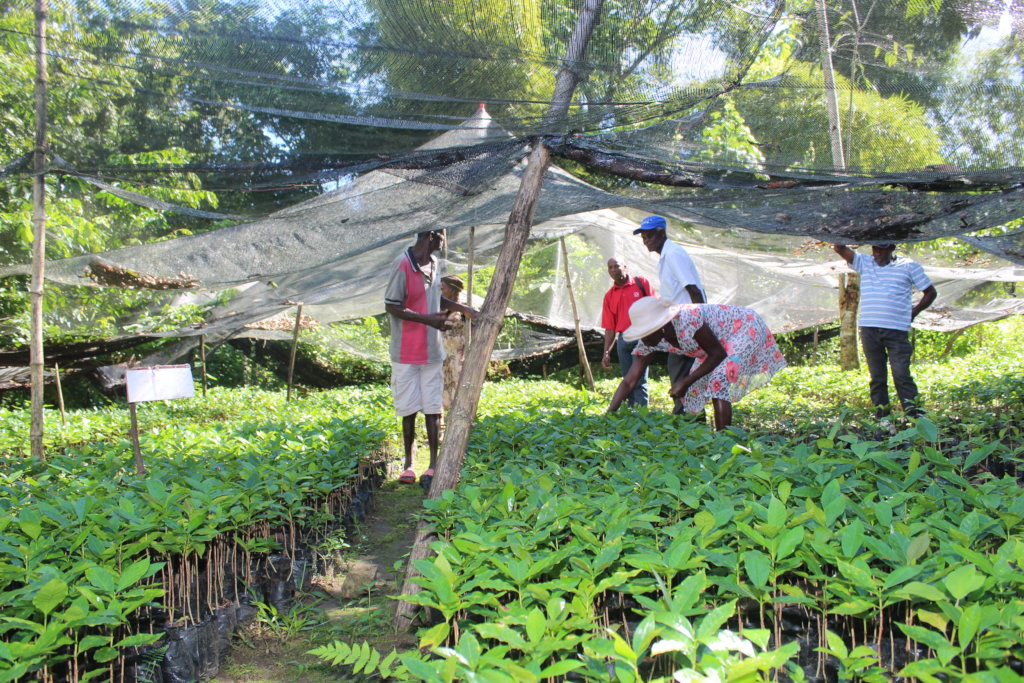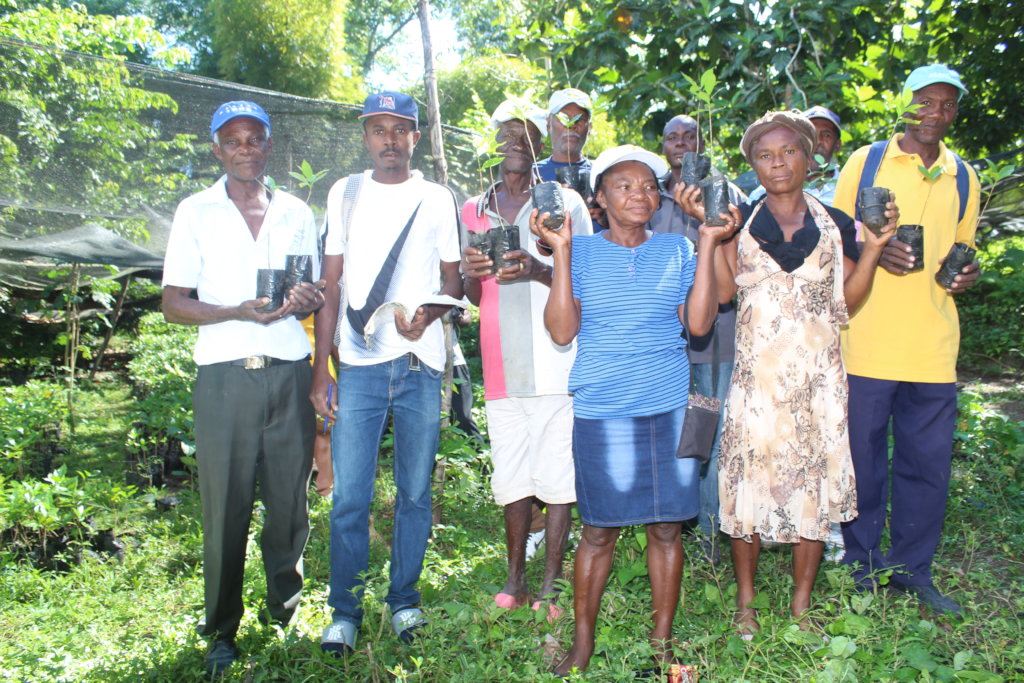Planting trees helps recover the depleted Haitian terrain for current and future generations. Haiti is still considered the most deforested country in the western hemisphere. Planting trees not only improves the land and soil to assist farmers with planting, but it also prevents natural disaster like land/mudslides from occurring.
Throughout 2019 and 2020, the Lambi Fund of Haiti continued to extend its environmental management framework to community organizations. The goal is to raise awareness on environmental degradation also to take concrete action to protect the environment. Those actions have mainly focused on 1) tree seedling production to assist in reforestation and 2) training programs which are focused on the environment: tree nursery techniques, climate change, agro-forestry. Fourteen organizations received support from Lambi Fund, including ten that already started projects that were underway and four that launched new projects going into 2020.
More than 1,500 members of the grassroots organizations we partner with participated in all of the activities carried out with these projects in the Artibonite and South regions. Some of the shade trees planted were cedar, cassia, chestnut, acacia, pine and mahogany trees. Some of the fruit trees were papaya, orange, grapefruit, lemon, mango, and avocado. The organizations distributed these seedlings to their members as well as public gathering places around their respective communities such as schools and churches. These seedlings were used to replenish space that is needed for either agroforestry or small community forests of approximately 5-10 hectares.
To accomplish all the tasks set forth throughout the year, Lambi’s staff supports the organizations in the planning and implementation of all project activities. A team of nursery technicians also provide them with the necessary guidance in seedling production in nurseries, distribution, planting and in monitoring the trees.
One of our partners that had the largest production goal was KOKAP. This organization had a production goal of 120,000 of coffee and cacao seedlings. The cacao production was completed back in 2019 and they continued to produce 60,000 coffee trees in 2020 despite several uncontrollable delays. Lambi has extended the evaluation period to make up for that lost time and give them a chance to complete distribution to the members as well as the planting of those trees. As of December 2020, KOKAP has distributed 50,149 coffee trees to 150 members. They are distributing the last 9,851 of the 60,000 coffee trees that are left in the nursery.
Hard work is no stranger to our partners and their resilience shows up during the most strenuous times. As we continue to work closely with our partners in rural Haiti, their strength and dedication to creating better lives for themselves and the people in their communities speaks volumes.


